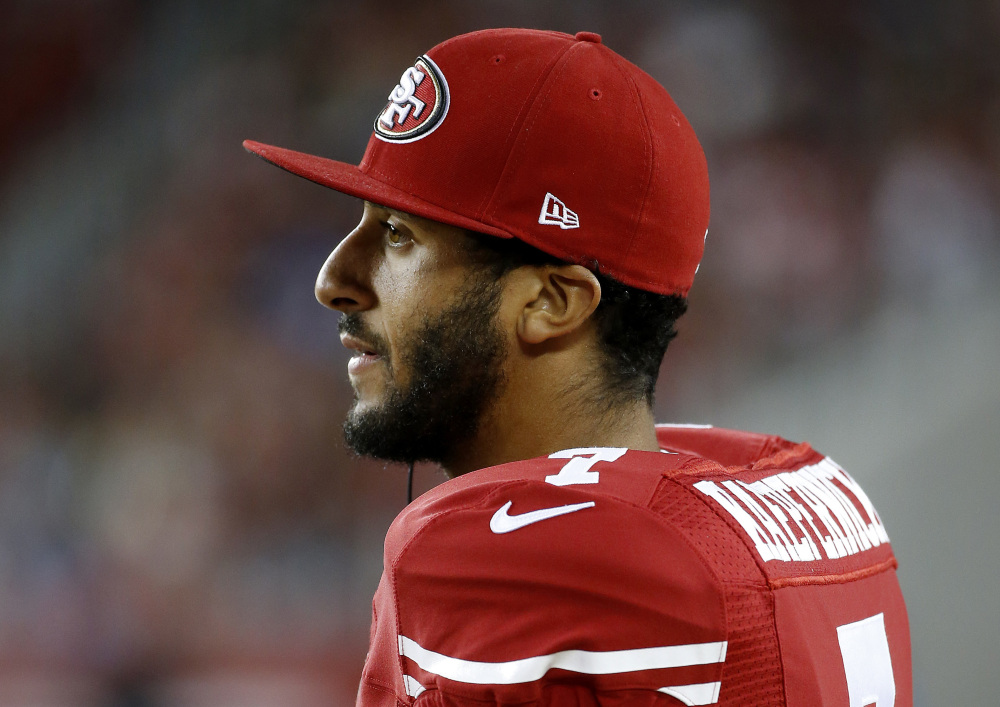What’s more important: respecting freedom, or respecting a symbol of freedom? The answer should be obvious. It’s not, though, judging from the over-the-top response to Colin Kaepernick, a biracial pro football player who has said that racial injustice in the U.S. is his motivation for his refusal to stand for “The Star-Spangled Banner” during his team’s preseason games.
Kaepernick, quarterback for the San Francisco 49ers, sat out the anthem at the first three games and has said he would again stay seated Thursday night in San Diego. But his stance didn’t make news until the third exhibition match last Friday.
“I am not going to stand up to show pride in a flag for a country that oppresses black people and people of color,” he told NFL Media after the game, pointing to “bodies in the street and people getting paid leave and getting away with murder” as evidence of ongoing police brutality.
Amid the immediate backlash, a common sentiment was summed up by Kaepernick’s counterpart on the New Orleans Saints, Drew Brees, who said in an interview with ESPN that the American flag “represents the very freedom that Colin Kaepernick gets the opportunity to exercise by speaking out his opinion in a peaceful manner about that issue. … It’s an oxymoron that you’re sitting down, disrespecting the flag that has given you the freedom to speak out.”
But Kaepernick’s gesture is grounded in the very principles on which the United States was founded. He’s exercising his freedom of speech to point out how, in his eyes, the U.S. is failing to deliver on the promise of justice for all. He’s holding our government accountable – a right that all citizens have and that more of us should exercise.
Another frequent swipe at Kaepernick is that, as someone who’s rich and famous, he doesn’t have any legitimate grounds for complaint. And it’s hardly stretching plausibility to believe that Kaepernick’s status makes his experience of race-based oppression far different from that of other people of color in the United States. He’s leveraging his advantages, however, to advocate for those who don’t have it as good as he does – and there’s nothing wrong with that.
Critics claim that Colin Kaepernick’s refusal to stand for the national anthem dishonors both the song and the United States. But the freedom to speak out is the freedom to say things that not everyone agrees with. That’s an expression of patriotism that deserves to be emulated, not derided.
Send questions/comments to the editors.


